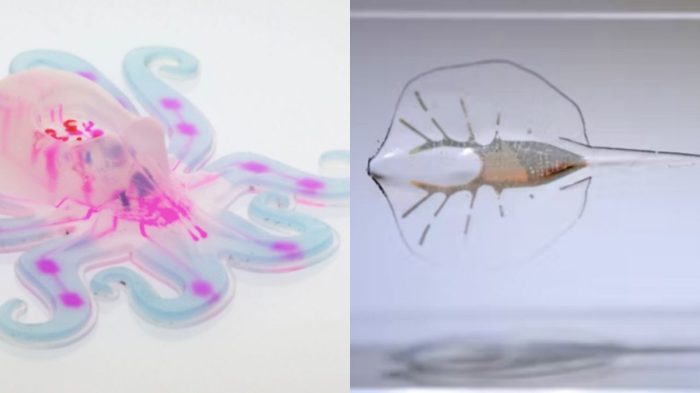As researchers are investigating the effectiveness of using a fungus takes center stage, this opening passage beckons readers with gaya akademik dengan tone otoritatif into a world crafted with good knowledge, ensuring a reading experience that is both absorbing and distinctly original.
The diverse properties of fungi have sparked growing interest in their potential applications within the realm of healthcare. Traditional medicine holds a rich history of utilizing fungi for therapeutic purposes, and contemporary research delves deeper into their medicinal capabilities.
Introduction: Researchers Are Investigating The Effectiveness Of Using A Fungus

Research plays a pivotal role in advancing healthcare and improving patient outcomes. As the search for effective and innovative therapies continues, there has been growing interest in alternative approaches, including the use of fungi.
Fungi, a diverse kingdom of organisms, possess a wide range of properties with potential medicinal and therapeutic applications. Traditional medicine has long utilized certain fungi for their healing powers, and modern research is now investigating their efficacy in treating various conditions.
Fungal Properties and Applications
Fungi exhibit a remarkable array of properties, including antimicrobial, antiviral, anti-inflammatory, and anticancer activities. These properties stem from the unique chemical compounds produced by fungi, known as secondary metabolites.
Examples of traditionally used medicinal fungi include:
- Ganoderma lucidum(reishi mushroom): Known for its immune-boosting and anti-tumor effects
- Cordyceps sinensis(caterpillar fungus): Used to enhance athletic performance and reduce fatigue
- Tremella fuciformis(snow fungus): Valued for its moisturizing and anti-aging properties
Research Methods and Design
Investigating the effectiveness of fungi requires rigorous research methodologies. Clinical trials, where participants are randomly assigned to receive either the fungal treatment or a control, are considered the gold standard for evaluating efficacy.
Observational studies, such as cohort studies or case-control studies, can also provide valuable insights, especially when conducting large-scale studies or exploring long-term effects.
Specific Fungal Species and Their Applications
Research is focusing on specific fungal species with promising therapeutic potential.
- Aspergillus fumigatus: Studied for its antifungal and antibacterial properties, particularly in treating invasive aspergillosis
- Candida auris: Investigated for its potential as a novel antifungal agent, due to its resistance to multiple antifungal drugs
- Trichoderma harzianum: Explored for its biocontrol abilities against plant pathogens and its potential in developing biopesticides
Evidence and Results
Research findings on the effectiveness of fungi in healthcare vary depending on the specific fungal species and condition being treated.
Some studies have demonstrated promising results, such as:
- Ganoderma lucidumhas shown anti-tumor effects in several cancer cell lines
- Cordyceps sinensishas been found to improve exercise performance in healthy individuals
- Aspergillus fumigatushas exhibited antifungal activity against various fungal pathogens
However, it is important to note that not all studies have reported positive results, and further research is needed to confirm the efficacy and safety of fungal treatments.
Future Directions and Implications, Researchers are investigating the effectiveness of using a fungus
Ongoing research continues to explore the potential of fungi in healthcare. Future directions include:
- Conducting larger clinical trials to establish the efficacy and safety of specific fungal treatments
- Investigating the mechanisms of action of fungal compounds to better understand their therapeutic effects
- Developing new fungal-based products and therapies for a wider range of conditions
FAQs
What are the potential benefits of using fungi in healthcare?
Fungi possess a wide range of potential benefits, including antimicrobial, antiviral, and anticancer properties. They can also boost the immune system and promote overall well-being.
What are some examples of fungi that have been traditionally used in medicine?
Traditional medicine has utilized various fungi, such as Reishi mushrooms, Cordyceps, and Lion’s Mane, for their purported health-promoting effects.
How are researchers investigating the effectiveness of fungi?
Researchers employ a range of methodologies, including clinical trials, observational studies, and laboratory experiments, to assess the efficacy of fungi in treating various conditions.



